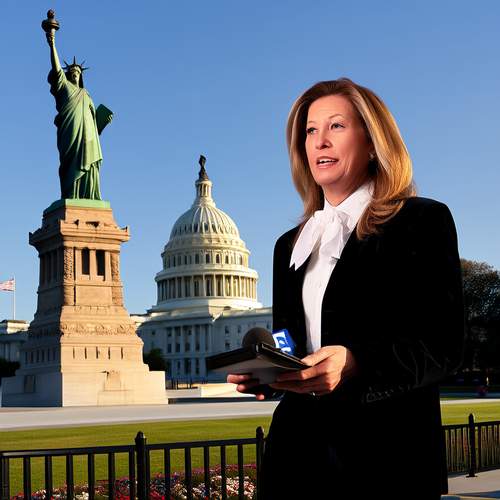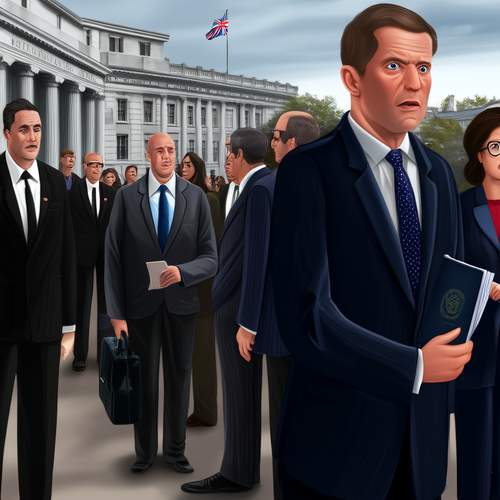In a move that has sparked widespread concern among journalists and media organizations, Defense Secretary Pete Hegseth has imposed new restrictions on press access at the Pentagon. These constraints, announced on Friday night, have been described by the Pentagon Press Association as a “direct attack on the freedom of the press and America’s right to know what its military is doing.” The association’s strong reaction underscores the severity of the situation and the potential implications for democratic oversight and public accountability.
The New Restrictions and Their Impact
The latest restrictions, outlined in a Pentagon memo, include additional credentialing procedures for press at the Pentagon in the interest of national security. These changes effectively make key parts of the Pentagon building off-limits to journalists unless they have an official escort. The memo also alludes to forthcoming measures, including a pledge to protect military secrets and tougher scrutiny of press credentialing. These additional restrictions are expected to be implemented in the coming weeks.
The Pentagon Press Association has expressed deep concern over these developments, highlighting that the changes will make it more difficult for journalists to access Defense Secretary Hegseth and eliminate the media’s freedom to freely interact with press officers for the military services. These officers are specifically hired to respond to press queries, and restricting access to them undermines the ability of journalists to perform their duties effectively.
A Pattern of Suppression
The recent announcement is part of a broader pattern of actions taken by Hegseth and his allies in the Trump administration to stifle independent media. Since January, there have been numerous steps aimed at limiting press freedom and access to information. Hegseth, a former Fox News host, has set a hostile tone by publicly assailing journalists, including his former colleague Jennifer Griffin, Fox’s national security correspondent.
Almost immediately after taking charge, Hegseth initiated a “media rotation program” that removed some of the country’s largest news outlets from their dedicated Pentagon workspaces. These spaces were subsequently offered to smaller, explicitly pro-Trump media outlets. This move was followed by the closure of the press briefing room “when not in use for public briefings,” further limiting opportunities for journalists to engage with Pentagon officials.
The Role of the Pentagon Spokesperson
Top Pentagon spokesman Sean Parnell, a close friend of Hegseth’s, has held only one press briefing to date. On Friday, Parnell defended the access restrictions on X, describing them as “pragmatic changes to protect operational security.” The memo outlining the restrictions emphasized the department’s commitment to transparency while also highlighting its obligation to protect classified intelligence and sensitive information to ensure the safety of US service members.
The Importance of Press Freedom
The Pentagon Press Association has been attempting to maintain a professional working relationship with Hegseth and his aides, but these efforts have been met with resistance. The association expressed puzzlement over why the Defense Department is focusing on restricting media access rather than engaging with it, as senior leaders have historically done.
Hegseth’s public comments have often framed the media as oppositional. He has denounced what he calls the “hoax press” and promoted himself through appearances on Fox opinion shows hosted by his friends. He has also enlisted right-wing content creators to amplify the Defense Department’s promotional efforts on social media.
The Broader Implications
The president of the National Press Club, Mike Balsamo, emphasized that independent coverage of the military is in everyone’s interest. “It keeps voters informed, strengthens democratic oversight, and sends a clear message to the world that America stands for openness and accountability,” Balsamo said. “Restricting access doesn’t protect national security. It undermines public trust.”
The Pentagon’s actions raise serious concerns about the future of press freedom and democratic oversight. By limiting journalists’ ability to access information and interact with key officials, the department is effectively undermining the public’s right to know what its military is doing. This erosion of transparency not only affects the media’s ability to report but also diminishes the public’s ability to hold the government accountable.
A Call for Transparency and Accountability
The Pentagon’s recent restrictions on press access represent a significant setback for press freedom and democratic oversight. The actions taken by Defense Secretary Pete Hegseth and his administration allies highlight a troubling pattern of hostility towards the media and a disregard for the public’s right to information.
As the Pentagon moves forward with additional restrictions, it is crucial for the department to reconsider its approach. Engaging with the media and fostering transparency are essential components of a healthy democracy. By restricting access and limiting the flow of information, the Pentagon is not only undermining the media’s ability to report but also weakening the public’s trust in its institutions.
The Pentagon Press Association and other media organizations must continue to advocate for the rights of journalists and the importance of independent coverage. The public’s ability to stay informed and hold its government accountable depends on it. In a time when transparency and accountability are more important than ever, the Pentagon must prioritize these values to ensure the strength and integrity of our democratic institutions.

By Grace Cox/May 26, 2025

By Emma Thompson/May 26, 2025

By Christopher Harris/May 26, 2025

By Laura Wilson/May 26, 2025

By Thomas Roberts/May 26, 2025

By Laura Wilson/May 26, 2025

By Amanda Phillips/May 26, 2025

By Noah Bell/May 26, 2025

By Laura Wilson/May 26, 2025

By John Smith/May 26, 2025

By Sarah Davis/May 26, 2025

By James Moore/May 26, 2025

By Amanda Phillips/May 26, 2025

By Michael Brown/May 26, 2025

By Daniel Scott/May 26, 2025

By Thomas Roberts/May 26, 2025

By Victoria Gonzalez/May 26, 2025

By Grace Cox/May 26, 2025

By Rebecca Stewart/May 26, 2025

By Laura Wilson/May 26, 2025